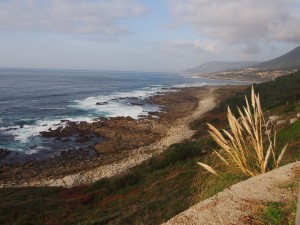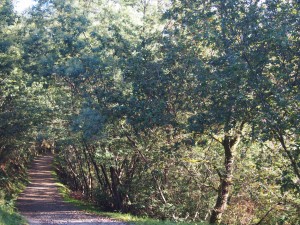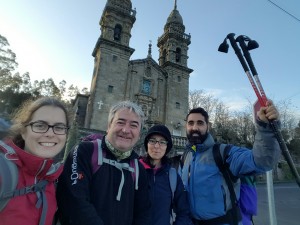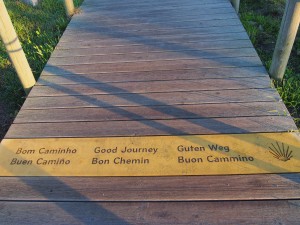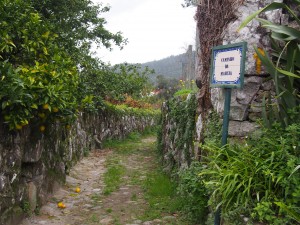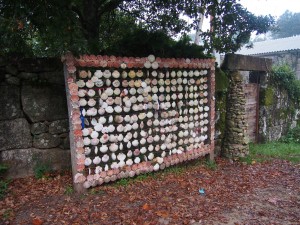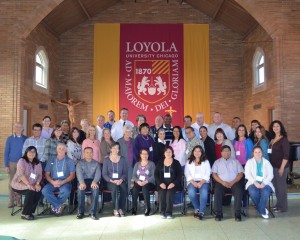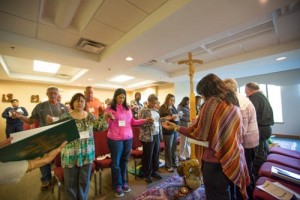
Ana, tell us a little bit about yourself. You just graduated from IPS and I hear you are planning on continuing your studies. What is next? How has your time at IPS helped you in your ministry?
I am from Tuxtla Gutiérrez, the capital city of Chiapas, Mexico, and I am 30 years old. I have a Bachelor’s in Financial Management with a concentration in Financial Analysis and Investment Management from a prestigious university in Mexico, the Monterrey Institute of Technology and Higher Education (ITESM), where I graduated with honors. I have experience as a Portfolio Manager with the Mexican Stock Exchange. I have also worked as a Purchasing Manager in Libertad Creativa S.A. de C.V., and as the General Manager of Win Land. Hence, my focus was on business and money.
However, in 2012, everything began to change when I initiated my catechesis for the sacrament of Confirmation in the Catholic Church. Without any doubt, this sacrament was the one that changed my life and personal goals. Soon after, I started to participate in the Catholic Charismatic Renewal Movement, where I began to know God. With the desire to know Him more, I enrolled myself in the Bachelor’s in Theology with Pastoral emphasis at one of the Catholic universities in my hometown. I studied this degree for three years, but I could not finish it for several reasons, one of them was my mother’s death.
My mother passed away in May 2015 due to suicide. It was the most challenging experience I have had. Nevertheless, it led me to the best of my life, my ministry, and my renewed relationship with God.
After my mother died, I had tremendous painful experiences, one after another. I felt like Job in the Bible, losing everything I owned and believed. As a result, I was suffering from depression. I did not think I could make it, but God never left me. He was with me during the darkest period of my life. Deep inside, I had one tiny sparkle, a light of hope, the desire to continue studying. I wanted a master’s degree in something related to God. Thus, by searching for it on the Internet, I found (curiously the first link) Loyola University Chicago. By reading the academic offer, I decided to apply to the Master’s in Christian Spirituality, Spiritual Direction concentration.
The day after I applied, I received an email from the Institute of Pastoral Studies (IPS) welcoming me to the program! You cannot imagine the joy and hope I felt! This news changed my darkness into light. It was not only the news but the entire experience of moving to Chicago and studying for my master’s program in the United States. The IPS faculty, my classmates, the Contextual Education program, the 19th Annotation of the Spiritual Exercises of Saint Ignatius of Loyola, my spiritual director… everything and everyone contributed to the healing of my heart and soul. It was a process of purification. It was not easy, but it was worth the effort. On the day of my graduation, I recapitulated my time at IPS with verse 6 of Psalm 126: “Those who go forth weeping, carrying sacks of seed, will return with cries of joy, carrying their bundled sheaves” (NABRE). When I arrived at IPS, I was heartbroken. When I left, I cried with joy! Furthermore, I proclaimed with Job: “By hearsay, I had heard of you, but now my eye has seen you” (Job 42:5, NABRE).
By becoming a spiritual director, I encountered myself and God. Before my master’s degree, I had lost sight of who I was and most importantly, who I was in God’s sight and love. However, through the program and the 19th Annotation of the Spiritual Exercises, I gained a new sight of myself and God. This experience of God’s love is the one that I try to hand down to my directees now that I am back in my hometown.
The Integration Project of my master’s degree became real when I opened the retreat house called El Cireneo, Hogar de Esperanza (The Cyrenian, House of Hope) in my hometown. Thanks to the personal and academic growth from my mother’s death, my own recovery process from depression, and my education, I was able to intertwine them, and the result was the healing program of the retreat house for patients suffering from depression. With the valuable help of my then Academic Advisor and Faculty Reader Jean-Pierre Fortin, Ph.D., I discerned that the goal of the retreat house and its holistic program (physical health, emotional well-being, and spiritual renewal) is to lower the rate of suicide, by enabling individuals suffering from depression to process their suffering.
I finished my Integration Project on June 23rd and one month later, I was opening the retreat house in the same place where my mother committed suicide. This house is now a place where people find healing, peace, hope, and life! I know this is only the beginning. There are more things I need to learn and do. For these reasons, I want to continue my studies. I have been in touch with the dean of the Doctor of Ministry (DMin) program at the Oblate School of Theology in San Antonio, Texas. I hope to apply for the doctorate program this year. As an online program, I will only have to travel there twice a year. Hence, it will not overlap with my time at the retreat house. I hope this degree helps me to gain a deeper understanding of ministry to enhance my role at the retreat house and develop more programs to stand in solidarity with those vulnerable in my state and country. And why not? Maybe worldwide. So, please, pray for me!
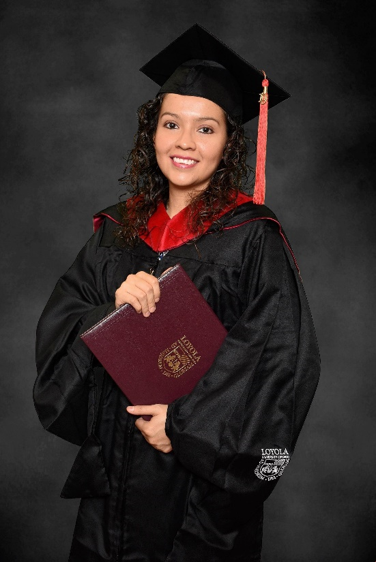
Any word of advice for current and future IPS students on surviving grad school and/or finding their path after grad school?
I remember during our welcoming session, the dean told us: “Be aware that all the structures you bring to IPS are going to be changed. You are not going to leave IPS being the same person.” This statement was completely true for my classmates and I. Thus, be open to allow the fresh air to blow in your life and ministry. Let yourself be surprised by God’s love and wisdom that you will gain through the courses and IPS faculty. If you do not know the path, He will guide you through every reading and experience within the classrooms. He is with you and will never abandon you!

What is the story behind El Cireneo?
When my mother passed away, I inherited the house where she committed suicide. It was hard for me to be around the house in the beginning. I thought I would never be able to emotionally heal and return. Thus, almost one and a half years later, I decided to lease the house, even though the process of emptying it and removing her belongings was extremely painful. The house had been occupied for almost two years when I had realized what God wanted for my life. No longer leasing it out, I remodeled it to what it is now, the retreat house.
It was last Holy Thursday when God told me to renew the house into a place where people could find Him. I went to the Last Supper celebration at the Madonna della Strada Chapel, at the Lake Shore Campus, where I then participated in the tradition of Seven Churches Visit, organized by Loyola University Campus Ministry. We were at the second church praying before the Blessed Sacrament when I listened to God’s voice telling me to transform my mother’s home into a retreat house. Soon after, I heard God revealing the name for it: “El Cireneo, Hogar de Esperanza” (The Cyrenian, House of Hope). I was amazed and said to Him: “What? Wait a minute! I just came here to pray, not to talk about the retreat house.” I have to admit I did not have any intentions to talk about the house. Nonetheless, for God, it was the proper time. He knew I was ready to move forward.
Hence, I asked Him: “¿por qué El Cireneo?” (why The Cyrenian?). Then, I remembered the Scripture passage about Simon of Cyrene (cf. Matthew 27:32). God allowed me to discern that I was going to become Simon of Cyrene, helping the suffering Christ (manifested in my directees) to carry the cross. In other words, God allowed me to understand that I was going to help my directees to carry their cross, depression. But this cross has a promise: a resurrected life. I learned from my mother’s death and my own experience of recovering from depression that there is no cross without resurrection.
It was during that same evening, on Holy Thursday, when God reminded me: “I came so that they might have life and have it more abundantly” (John 10:10, NABRE). For this reason, when patients arrive at the retreat house, the first sight they can appreciate is the name of the house and this Biblical passage, John 10:10.
Jesus came so each of my directees/patients can have life and have it more abundantly. The staff and I try to bring them relief, reassurance, and consolation by being their Simon of Cyrene in their journey to a resurrected life in Christ.
Tell us a little about treatment at El Cireneo, Hogar de Esperanza.
As I mentioned before, thanks to the personal and academic growth from my mother’s death, my own recovery process from depression, and my education, I was able to intertwine them, and the result was the healing program of the retreat house for patients suffering from depression. In fact, the healing program reflects my own recovery process from depression in a holistic manner: physical health, emotional well-being, and spiritual renewal.
a) Physical health: when a patient arrives asking for help, he/she is interviewed by the psychologist. He is the one who gives the preliminary diagnosis. If the patient is diagnosed with depression, we ask them to undergo testing at a laboratory by the request of the neurologist to rule out physical diseases causing depression (e.g. hypothyroidism). The neurologist determines if the patient needs to be medicated and/or referred to psychiatry. Additionally, there is a nutritionist helping patients improve their diet with the purpose to increase their physical energy.
b) Emotional well-being: the patient meets with the psychologist every week to process his/ her suffering and acquire tools to manage his/her emotions.
c) Spiritual renewal: through the 19th Annotation of the Spiritual Exercises of Saint Ignatius of Loyola. The directee meets with me (the spiritual director) weekly to talk about his/her process throughout the retreat. We listen and discern God’s voice in his/her life. I help him/her to contemplate his/her life through God’s love, mercy, beauty, and wisdom. It is important to mention that we have monthly therapeutic and spiritual direction meetings with all the patients, so they can create a sense of community. They realize that they are not walking alone trying to overcome depression. They help each other by sharing their stories.
Because poverty is the main cause of depression in Chiapas, the program is free of charge. We only require patients to commit themselves to their recovery process.
——————————————–
If you would like to know more about Ana’s ministry check out the Facebook page: www.facebook.com/elcireneo
You can also contact Ana via email suenos.milagrosos2@gmail.com
If you want to help El Cireneo, Hogar de Esperanza you can make a donation via PayPal – PayPal.Me/analopu14 or email Ana for her bank information.

